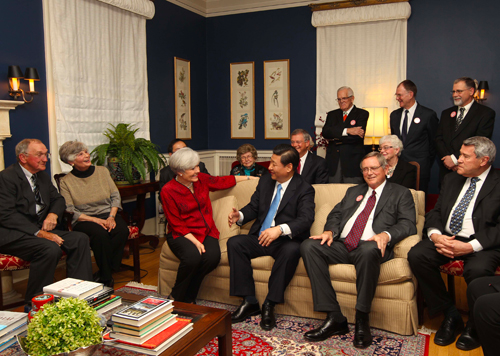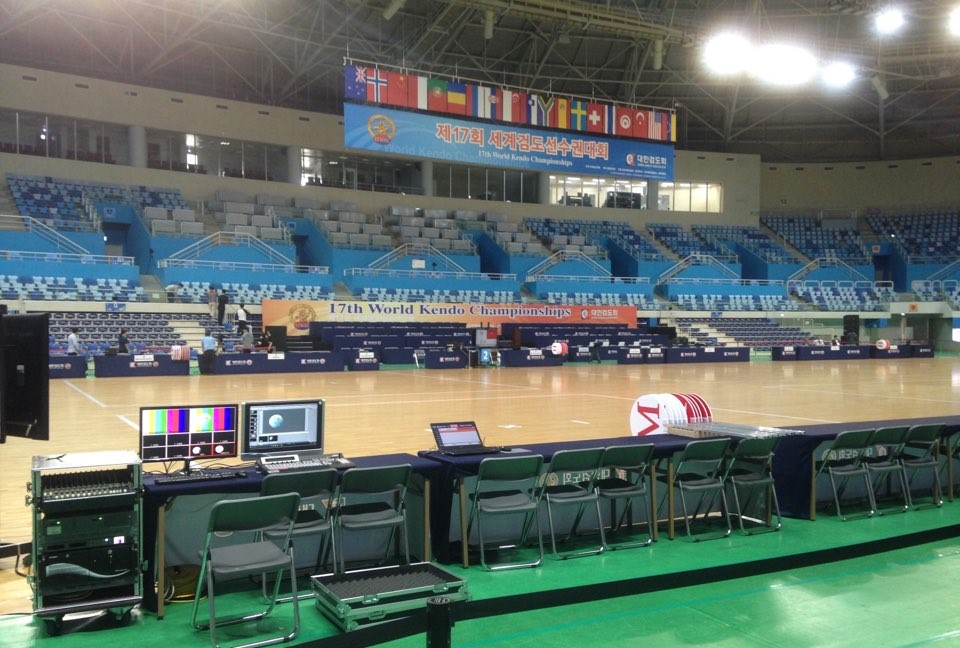The global spread of the coronavirus continues to instill fear and panic. However, we have to brace ourselves for another issue that might have significant implications for the world: concerns over North Korean Supreme Leader Kim Jong Un’s health condition and whereabouts.
Speculation about Kim Jong Un’s health began with his absence from the celebration of the Day of the Sun on April 15, 2020. For North Korea whose power transition occurs in strictly a hereditary manner, the Day of the Sun is regarded as the most important holiday that celebrates the birthday of the divine founder of their great nation, Kim Jong Un’s grandfather, Kim Il Sung. Traditionally, this annual event has been celebrated with large-scale, dramatic military parades that feature North Korea’s most advanced military hardware. Unknown to most, the North Korean calendar starts on April 15, which marks the importance of the Day of the Sun for the country. Additionally, North Korea’s official state media that is traditionally responsive to external opinions about the country has remained silent, adding much fuel to the global speculation about its leader’s precarious health situation.
Concerns over Kim Jong Un’s health were first brought to light on April 21, 2020, by an article posted on the Daily NK, a South Korean online news agency that focuses on North Korea related issues. According to the article, Kim Jong Un recently underwent heart surgery and is now recuperating from the procedure at a villa outside the North Korean capital. His post-surgery condition was reported to be “stable.” Yet another article published by CNN later on the same day gives a stark contradiction. According to the article, Kim Jong Un is in “grave danger” after undergoing surgery and claims that this information has been provided by a “US official with direct knowledge.”
The world should be wary of the sudden disappearance of Kim Jong Un and mounting rumors about his health. History has shown that political power transition, especially in authoritarian states, is oftentimes a long, difficult, and volatile process. While the health condition of Kim Jong Un remains unconfirmed, it is never too early to think about what comes next.
North Korea
If proven true, health-related issues of its sole leader would have unavoidable impacts on North Korea. North Korea has been ruled by one family for 70 years, and it is unlikely that the Kim family would renounce its long-standing position any time soon. Giving attention to Kim Jong Un’s sister, Kim Yo Jong’s increasing public appearance and her enhanced role in North Korean politics and diplomacy might be indicative of a leadership takeover. For instance, she issued her first comment on inter-Korean relations, calling the South a “frightened barking dog,” following its protests against the North’s live-fire military maneuver. On another occasion, the North Korean state media delivered a statement on US-North Korea relations, which allegedly came from Kim Yo Jong. In her statement, Kim Yo Jong referred to a personal letter her brother received from US President Donald Trump, which, according to her, was indicative of their personal relationship. “The personal relations between the two top leaders are not as far away as the relations of confrontation between the two countries, and they are very excellent. But the relations between the DPRK and the U.S. and their development should not be judged in haste in the light of the personal relations between the two top leaders, and furthermore, neither predictions nor expectations should be made based on them,” she stressed.
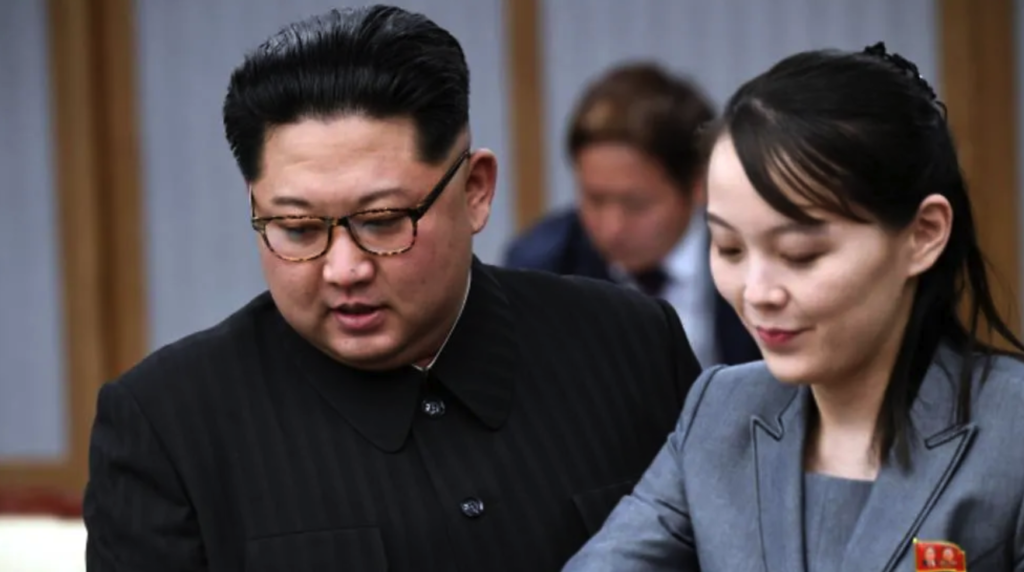
(North Korean Leader Kim Jong Un and his sister Kim Yo Jong/ Photo via CNA)
What does the absence of Kim Jong Un and his sister’s increasing role as his spokesman mean for North Korea? While it is hard to imagine for a country like North Korea to accept a female leader, Kim Yo Jong’s increasing public appearances might have been a test to demonstrate her competence as her brother’s successor. Fact-checking is extremely difficult given the closed and insular nature of North Korea. The personal health of the North Korean leader is nevertheless an important and timely topic that will impact other stakeholders, namely the US, China, and South Korea.
United States
The US should come as one of the most prominent stakeholders in this matter. Just a few days before information on Kim Jong Un’s health surfaced, US President Donald Trump commented during a press briefing, saying, “I received a nice note from him recently. It was a nice note. I think we’re doing fine.” During his talk, Trump also praised his administration for its diplomatic achievements with North Korea, claiming that they would have been at war had he not been elected. While Trump’s assertion was denied by North Korean officials shortly, it is in the Trump administration’s interest to stress a picture of a North Korea that is friendly to the US.
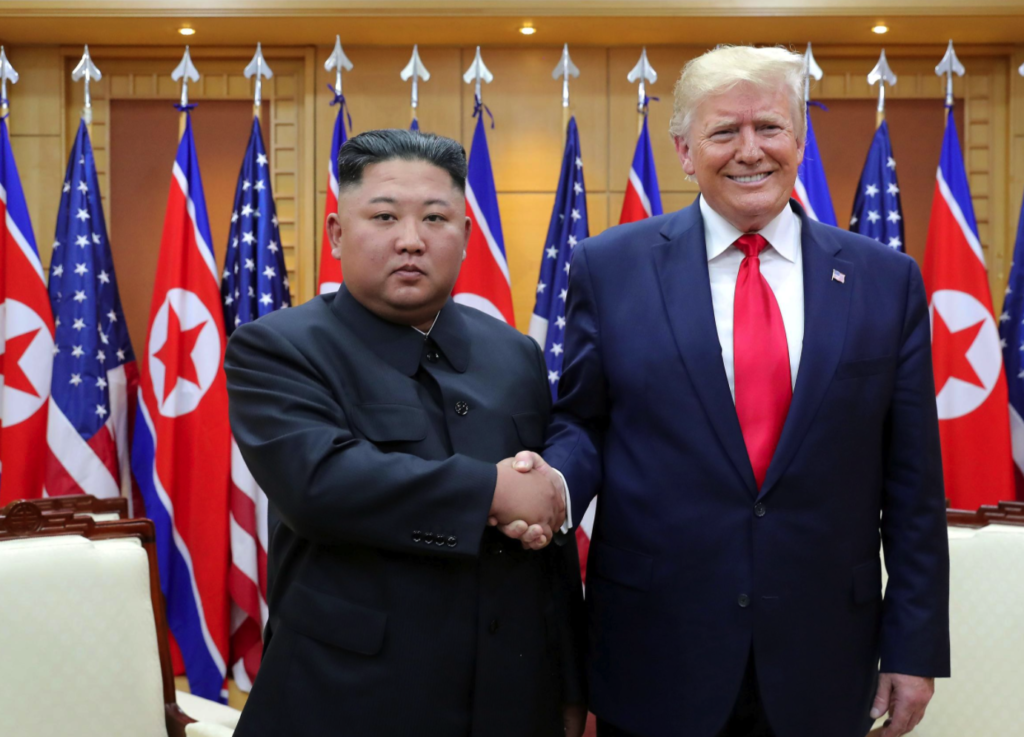
(US President Donald Trump and North Korean leader Kim Jong Un at Panmunjom, South Korea, June 30, 2019/ Photo via Reuters)
It has been a rocky few weeks for the US. The country has been embroiled in the outbreak of the coronavirus, with the nation-wide death toll surpassing 40,000. What we should not forget however is another big national event that awaits the US and its citizens, the 2020 Presidential Election scheduled on November 3, 2020. Given these current domestic situations, the absence of Kim Jong Un, which might create a power vacuum and throw the East Asian nuclear state into a state of panic, is an unwanted issue the US would like to avoid at all costs.
Where there’s an issue there’s an opportunity. If the information on the North Korean leader’s precarious health proves true, this might open up a new window of opportunity for the denuclearisation of the Korean Peninsula. If a power transition were to occur in North Korea, the US would utilize its power and connections to compel the successor to abandon national ambition for nuclear arsenals, and gradually open up the country to the rest of the world. Thankfully, there is no clear sign of immediate military engagement between the two. But we must keep in mind that they also failed to agree on a consensus at their last nuclear talks in Stockholm in October 2019. Since then, negotiations have been suspended, and North Korea is back on track with missile testing. In this right, bringing back Pyongyang to the negotiation table would leave the Trump administration a massive legacy to have a head-start on the 2020 Presidential Election.
China
Given its close proximity to North Korea, China cannot dismiss any possibilities that might influence the future trajectory of its “belligerent little brother.” China has traditionally supported North Korea both economically and diplomatically. At the international level, China, as one of the permanent members of the Security Council, has at several times resorted to the systematic use of its veto power to prevent Pyongyang from unwanted changes and burdens. At the bilateral level, China provided $3 million in humanitarian aid to North Korea in 2016, designed to help the reconstruction of areas impacted by floods. China’s President Xi Jinping’s visit in 2019 to Pyongyang to personally meet Kim Jong Un, was the first Chinese state visit to Pyongyang in the past 14 years, symbolizing their special relations. He was in turn welcomed by thousands of North Korean citizens holding banners and flowers to pay respect to the Chinese leader, illustrating the symbolic relations they both value. For one of the few world’s great powers that emerged as a contestant of the US, rumors surrounding Kim Jong Un’s precarious health condition might be representative of an unwanted future of fierce geopolitical competition with the US and its allies. The worst scenario for China would be its buffer state suddenly turning overtly pro-Western, and it is thus expected that Beijing would endeavor to play a central and leading role in assisting a power transition in Pyongyang in case of Kim Jong Un’s death.
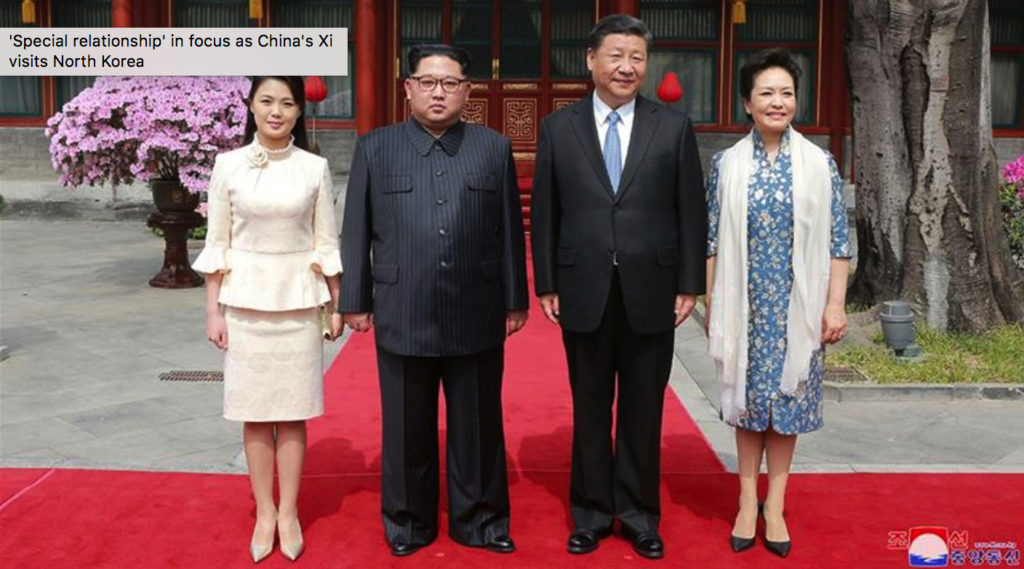
(Chinese President Xi Jinping with North Korean leader Kim Jong Un in Pyongyang/ Photo via Aljazeera)
At the same time, what we must keep in mind is China’s declining leverage over North Korea. Much to the disappointment of the US political lines that advocated for dialogues and engagement, rather than confrontation with China, Beijing continuously failed to play its expected role in delivering fruitful outcomes at the six-party talks to alter Pyongyang’s nuclear ambitions. Furthermore, its inability to exert effective control over North Korea’s provocative military activities has contributed to a more volatile security environment in East Asia. This is seen most evidently by the growing discourse on Japan’s need to revoke the peace clause enshrined in Article 9 of its constitution. While it is extremely unlikely in my personal view that Japan would resort to nuclear weapons due to its long-held domestic culture of pacifism and credential as a civilian power, some scholars point to theoretical capabilities for the country to go nuclear in a very short amount of time. And in the realist school of thought, the same could be said for South Korea. All of these point to an unlikely future for East Asia. Nevertheless, preventing regional arms races and maintaining order is one of China’s major national interests. The rumors surrounding Kim’ Jong Un’s health might provide Beijing with an opportunity to carefully reflect on the fragility of East Asian regional security and reconsider its position on North Korea.
South Korea
Back in 1994, then South Korean President Kim Young Sam was unable to meet Kim Il-sung due to the latter’s sudden death from heart failure. This led to the deterioration of South-North Korean relations. South Korea empirically knows that any small changes in the North could entail substantial, oftentimes unexpected, implications for the Korean peninsula.
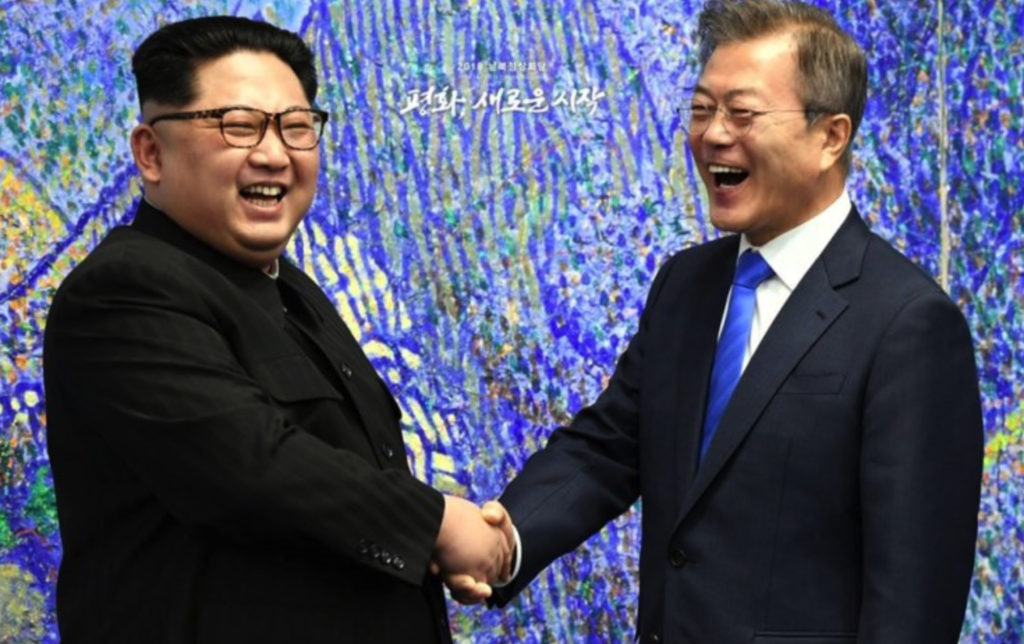
(South Korean President Moon Jae-in and North Korean leader Kim Jong Un during their summit April 27, 2018/Photo via Korea Times)
For the Korean peninsula, the collapse of the power of the Kim dynasty might open up the country to international society because “No polity is permanent or indestructible.” On the other hand, it could unfold in more chaotic ways, resulting in multiple disruptive scenarios including issues of refugee crisis and weapons of mass destruction. Uncertainty lies ahead in Kim Jong Un’s sudden disappearance.
The year 2018 marked a historical moment when South Korean President Moon Jae-in met North Korean leader Kim Jong Un at the border. As recently as August 2019, the incumbent South Korean leader reaffirmed his desire for the unification of the two Koreas that are technically still at war. To achieve this goal, South Korea exercises the utmost caution to prevent chaos in North Korea. This is evidenced by South Korea’s statement in contrast to CNN that there was “nothing to confirm rumors about chairman Kim Jong-un’s health, and no special movement has been detected inside North Korea as of now.”
With quick and decisive responses to the coronavirus, which have been internationally applauded, President Moon is regaining his popularity, with his approval rating rising from 47.2% in mid-March to 64.3% in late April. Just a few days ago, South Korea held a general election, which ended with the ruling Democratic Party’s victory. This paves the way for Moon to further advance his interest in the unification project of the Korean peninsula during his tenure, which expires in 2022. The absence of the North Korean leader is something that South Korea wants to keep a close and careful eye on. South Korea must continue to communicate and coordinate carefully with the other stakeholders to prevent unilateral acts at the expense of the two Koreas.
Shugo Okaeda holds a BA from Monash University, Australia and is currently completing his MA at Korea University, South Korea. Previously, he worked as a research assistant at SSK Human Rights Forum and is currently working as a research assistant at Korea University. He has previously written for NOVAsia.
- “I Love My Body”: Hwasa and Female Empowerment in K-Pop and Korean Society - May 6, 2025
- English Fever in South Korea - February 24, 2025
- South Korea’s Medical School Expansion – Cure Worse than the Disease? - October 20, 2024





